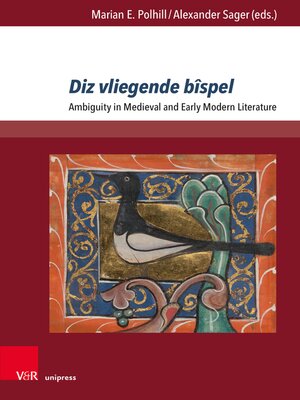Diz vliegende bîspel
ebook ∣ Ambiguity in Medieval and Early Modern Literature. Essays in Honor of Arthur Groos · Transatlantische Studien zu Mittelalter und Früher Neuzeit – Transatlantic Studies on Medieval and Early Modern Literature and Culture (TRAST)
By Marian E. Polhill

Sign up to save your library
With an OverDrive account, you can save your favorite libraries for at-a-glance information about availability. Find out more about OverDrive accounts.
Find this title in Libby, the library reading app by OverDrive.



Search for a digital library with this title
Title found at these libraries:
| Library Name | Distance |
|---|---|
| Loading... |
The volume explores the theme of ambiguity in medieval and early modern literature in essays honoring the life and work of Arthur Groos, Avalon Foundation Professor in the Humanities at Cornell University, USA, emeritus. The famous expression diz vliegende bîspel from Wolfram von Eschenbach's Parzival is its watchword. In the poem the black and white plumage of the magpie represents the characteristic complexity, ambiguity, and ambivalence of the romance. Removed from its historical context the expression is also a figure of Arthur Groos's wide-ranging intellectual flight. In addition to his work on medieval German verse narrative, he has made important contributions to courtly love poetry, medieval and early modern scientific literature, early modern German literature in general, and especially to opera.







